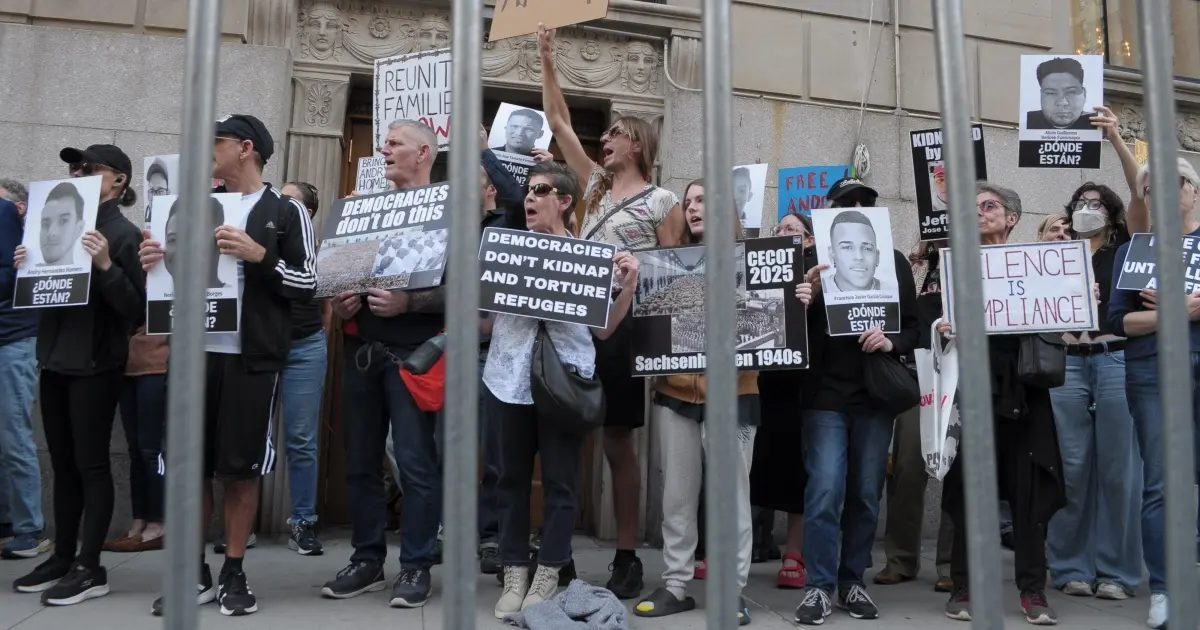A federal judge has raised serious concerns about recent U.S. deportation practices involving African nationals, ordering the Trump administration to explain how it is preventing deportees from being sent to countries where they may face torture or persecution.
What Happened
- Five migrants — originally from Nigeria and The Gambia — had been granted protection under U.S. law after judges determined that returning them to their home countries would put them at risk due to persecution or torture.
- Despite those protections, the U.S. reportedly deported them to Ghana. From Ghana, there is concern they may be or already have been transferred onward to their home countries — in direct conflict with the original legal rulings.
- One of the plaintiffs has already been sent to The Gambia without formal travel documentation and is now in hiding because of credible fear for his safety.
Claims and Legal Challenge
- The civil rights group Asian Americans Advancing Justice filed a lawsuit stating the deportations were executed “with a wink and a nod” — suggesting an intent by the administration to bypass legal protections using Ghana as a transit or “third country.”
- Among the allegations: during a 16-hour flight aboard a U.S. military cargo plane, four of the five individuals were restrained in straitjackets. They were reportedly given minimal sustenance (bread and water) and shackled even during bathroom breaks.
- Upon arrival in Ghana, they were detained under harsh conditions in an open-air facility with limited clean water, inadequate shelter, and heavy security oversight.
Judge Chutkan’s Response
- U.S. District Judge Tanya Chutkan expressed deep skepticism over the government’s argument that once the individuals are outside direct U.S. control, there is nothing more it can legally be required to do.
- The judge ordered the administration to provide a detailed declaration by late evening explaining what actions are being taken to ensure that Ghana will not deport them onward to their home countries or allow them to be subject to abuse — contrary to the protections already granted under U.S. immigration law.
Implications & Broader Context
- The case strikes at the heart of U.S. immigration law designed to protect individuals who have a well-founded fear of persecution. By using third-country transfers (sending individuals first to another country), there is concern these protections may be undermined.
- Human rights groups warn this kind of arrangement could become a precedent: using third-party nations as buffers to shift legal and moral responsibility for deportations where protections are in question.
- For those deported without formal travel documents or proper notice, this raises additional concerns about due process rights and international norms regarding asylum, torture, and non-refoulement (the principle that a person should not be returned to a country where they face a real threat of torture or persecution).
What to Watch
- Government Filing: What precisely will the administration reveal in its declaration? Will there be legally binding commitments by Ghana or third countries to not further deport these individuals?
- Further Court Action: The lawsuit seeks not only to halt future deportations via Ghana but also to facilitate the return of the plaintiffs to the U.S.
- Policy Adjustments: This could spur changes in how “third-country” deportations are handled, especially when the individuals have already been granted protection in U.S. courts.
- Human Rights Oversight: Increased scrutiny from international legal observers, advocacy groups, and possibly foreign governments over whether U.S. practices meet obligations under international treaties against torture and forced returns.
















Leave a Reply